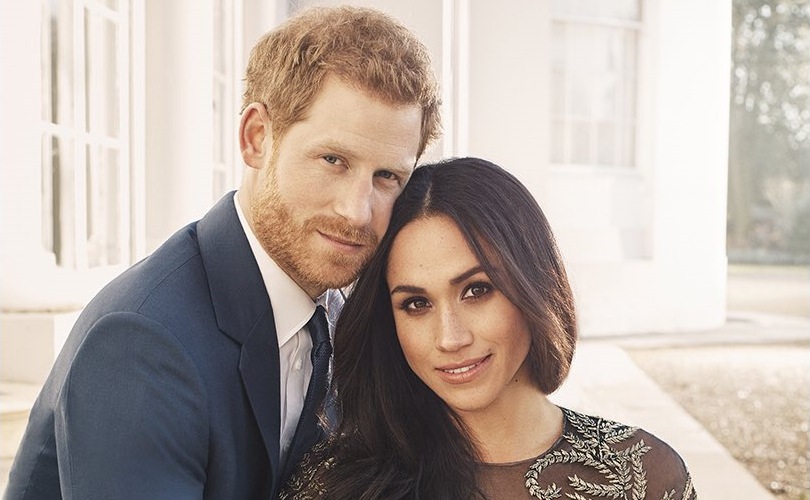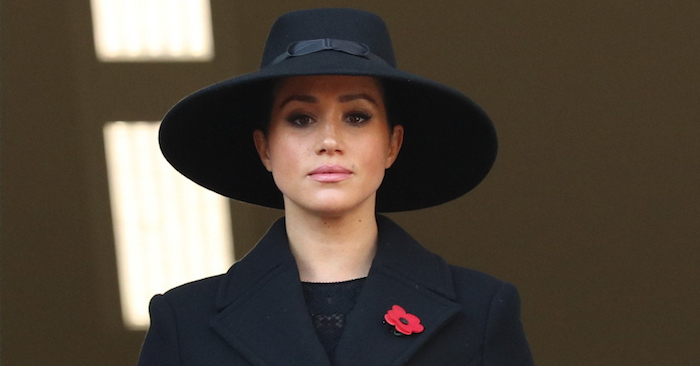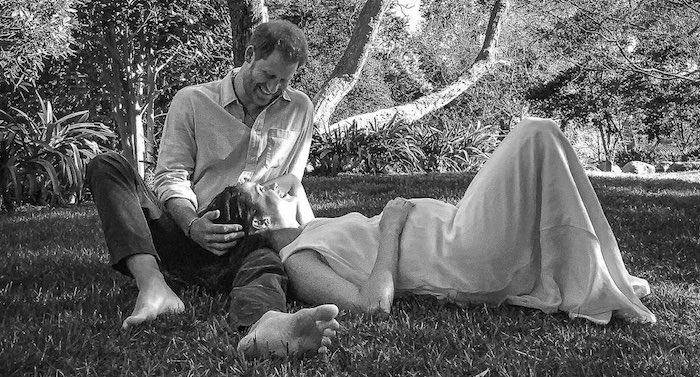I want to discuss a topic which has been kicking around for years while Prince William was launching his attacks against the press, but has taken on a new life with the launch of the SussexRoyal Instagram account and Prince Harry‘s and the Duchess of Sussex‘s lawsuits against the press: the idea that the royals don’t need the press; and, specifically, that all they need is social media. This is going to be a long one, but I think it’s an important topic.
I’ve been in the royal watching space for a long time, and back in the 2014-2016 era of royal watching, William was the one that was launching all these attacks against the press (and the press were sometimes attacking back), and a theme in the royal watching discussion was that the royals needed the press more than the press needed the royals. This idea of quid pro quo and the royals needing the press, and basic negativity for William, lead to commentary that William was being ridiculous in his pursuit to control the press.
Flash forward to 2019 and the tone of conversation around the royals needing the press has shifted drastically to the idea that Harry and Meghan don’t need the press, that their social media accounts are good enough for communication with the public, and that their lawsuits against the press are warranted.
This article isn’t about making a judgement call on whether any of the royals’ various lawsuits are warranted – from William’s to Harry and Meghan’s to whomever else may have sued the press at one point or another. What I want to take a dive into is whether the royals need the press, and whether royal social media accounts are good enough communication with the public, and what implications the royals’ social media and/or lack of press has for the public. I am specifically going to be focusing on the British Royal Family social media accounts here.
There are three aspects to consider when considering whether the royals need the press or if their social media accounts are good enough: from the perspective of the royals; from the perspective of the press; and from the perspective of the public. What’s great for one, might not be so great for the others.
From the perspective of the royals, the appeal of social media, and of using social media to cut out the press, is fully apparent. With social media, the royals can curate their own narrative, only show what the royals want the public to see, and use their platform for marketing and propaganda. Which is essentially just describing social media in general, from the average people on Facebook who lie about the state of their marriages, to the influencers on Instagram and YouTube who lie about what they actually look like (FaceTune) and manufacture drama. For the most part, social media is solely used to post the good things about someone’s life, to curate their life into only what they want their followers to see, and to market themselves, organizations, and products to their followers. This idea of narrative-building doesn’t have to be a negative – people can promote charities and volunteering, but it still qualifies as curation of a narrative and marketing.
For the royals, changing their communication with the public to that of pure social media marketing is the most beneficial for them. In addition to owning their narrative (which is something the royals very clearly want), they would never have to answer to the press or public holding them to account because they wouldn’t communicate with the press, and the public’s comments would be curated to disallow negative comments.
For the royals, there aren’t a ton of downsides to a social media-only strategy. This type of strategy would benefit all of the royals since it’s clear they enjoy and benefit from lack of transparency. However, one potential downside would be that they wouldn’t reach as wide an audience. While the British royals have 40.6 million followers across all their social handles, they only reach a certain segment of the population who are actually on social media regularly (in addition to dupe followers across the multiple accounts, and followers who are doing so as part of their job) and they cannot target a specific location.
According to data pulled from Demographics Pro, 60% of @SussexRoyal’s followers are aged 20-29, 91% are female, and 22% are in the UK. For @KensingtonRoyal, 56% of their followers are 17-24, 87% are female, and 38% are in the UK. @ClarenceHouse has 49% of their followers aged 20-29, 80% female, and 25% in the UK. @RoyalFamily has similar demographics with 51% of followers aged 17-24, 66% female, and 32% in the UK.
Royal watchers are overwhelmingly female, from anecdotal data I’ve noticed over the years, so the vast majority female in those demographics doesn’t surprise me; and social media does tend to skew younger, so the people who are most active on social media are the younger crowd. But the people who follow the royal social media accounts are the people who are actively seeking out the royals, rather than the people who tangentially see positive (or negative) PR about them in the paper. The royals need to build and keep enough good will with those regular folks in the UK who don’t actively seek them out so they have enough of a neutral to positive vibe with them not to want to remove them. The press helps with that as they reach those people more than the royal social media accounts would.
Of course, an additional downside to a social media-only marketing strategy specifically for Camp Sussex is that they are using a platform that Harry has repeatedly said is harmful.
From the perspective of the press, the royals switching to a purely social media strategy is awful. The press uses the royals for profit – generating revenue from online ads and paper sales – and the royals cutting them out would mean less sources and less ability to generate articles for revenue. The press doesn’t want the royals to cut them out because not only does it cost the press revenue but they no longer get to control the narrative. And the press wants to control the narrative so that they can write what generates them the most revenue.
That’s not to say “poor press”. There are real problems with the press that need addressing. Yellow journalism is a problem, and it always has been, but it won’t get any better because no one on the internet wants to consistently pay for content. The reason the yellow journalism of the 20s petered out was because of paper circulation subscriptions. But because people are so unwilling to pay for online content, and no one’s reading real newspapers anymore, yellow journalism has come raging back. The reason certain sections of the press can be so hateful toward Meghan is because people give them clicks, which equals revenue. The reason Meghan’s dad was given such a platform was because people gave articles and news with him clicks and watches, which equaled revenue. Even when people were commenting that the Daily Mail articles were horrible, they were still giving the DM clicks and revenue. And to the press, any clicks and revenue are good clicks and revenue.
This is why papers like The Times are more highly regarded, because you have to pay a subscription fee to read their articles, which means a consistent revenue stream for them so they don’t have to stoop to clickbait as much as a paper who doesn’t use a subscription model.
For both the royals and the press, whether the press is needed is about having control, setting the narrative, and profiting. While these two giants are over here battling it out for control, the perspective of the public is lost. The most important perspective in all this is that of the public, and specifically the British taxpayer (as an American, I can comment all I want, but at the end of the day my taxes aren’t being used to subsidize the royal family).
Let’s discuss something positive that would disappear with a social media-only royal strategy, because there are positive things that come out of royal reporters being on site during appearances. For one, soundbites from the royals.
With a social media-only strategy, we would lose any chance for a soundbite from the actual royal, something I’ve lamented for years when Kate would speak so softly no one could hear what she said to people. Having royal reporters at the appearances provides a chance for the royal reporters to actually quote the royal saying something, rather than writing “they did this” and nothing else. Additionally, the royal reporters are able to speak with the people the royal met, and ask them what the royal said or what they thought about the royal. These quotes provide anecdotes for a story to give it more life.
Another example, without the royal reporters, we wouldn’t know how long the royals stay at an event. William and Kate were criticized in the past because they would stay at an event for less than an hour, but the only way we knew that was because the royal reporters who were at the event made that information known.
Another loss would be the photos. There would only be a handful of photos, if that, with a social media-only strategy. Those fun photos of Kate eating that I love, the ones with Meghan sitting on the floor with children, the Harry with kids photos everyone goes gaga over, those would disappear.
Let’s move into some negatives that would come with a royal social media-only strategy, because there are some important ones to discuss. Firstly, social media is curated to show a narrative, so essentially it can be used as propaganda. If there is fraud or criminal activities of any kind, or associations with known or alleged criminals, that would be more easily covered up if the press isn’t there to dig into it, if a public official is given free license to curate their own narrative with no fact checking.
Granted, the royal family can certainly cover up crimes by shutting down the media, as is evident with the Duke of York’s alleged crimes that BP attempted to bury for years, but the point stands. There have been many articles written about the Duke of York’s alleged crimes over the years, even if the royal family was able to shut some of them down. If not for the press, we wouldn’t know about that. It was the press pressure that got Andrew to shoot himself in the foot on TV, and it was the press fallout from that interview which got Andrew to step down from royal duties. And the press has been keeping the pressure on Andrew since then.
The royals are not normal celebrities or influencers who fund themselves and can do whatever they want with their own money; the royals are publicly funded officials. The actions of publicly funded officials, their spending habits, their optics, need to be held accountable by the press and by the public. Anyone who takes taxpayer money to do a job – and yes, being a royal is a job – is accountable to the people who put them in office, or who fund their jobs and lives.
And I know that “but the taxpayers” is the “but her emails” of the royal watching sphere and can be used almost as a concern troll at this point, but when someone is a taxpayer-funded public official, they don’t get to exist on propaganda. There is a level of press scrutiny that comes along with that role because without it, it leaves open the possibility of fraud. As an example, The Queen’s yearly stipend from the government should have been paying for the upkeep on Buckingham Palace but instead the government had to fork over additional hundreds of millions of pounds to fix it because it had fallen into such a state of disrepair. Why wasn’t there a yearly allocation of funds to make repairs to BP? Where was the money spent instead? We don’t know those things because the royals want that covered up because they profit from lack of transparency.
I have another point about stan culture that I won’t fully dive into in this article, because I think it’s too large a topic to append here, but I want to mention that even with celebrities, influencers, brand owners, etc. the idea of not holding people to account, or “stanning” someone and never questioning them, is, in my opinion, wrong. People must be held accountable for their actions, even people we like. If a celebrity, influencer, or royal does something stupid, offensive, fraudulent, etc. they should be called out for it. No one should be above accountability.
To bring this around, I’m not saying that Harry and Meghan are committing or will commit fraud on the taxpayer, or that they are incredibly problematic people, but I’m not saying William and Kate are either. But when William had his moment of war with the press when he was threatening lawsuits on everyone, people (in my opinion, rightly) called him out for it. Heck, people call William out for that Rose what’s-her-name cover up thing even now.
Now, I love parts of the Sussex social media game. I love that Camp Sussex releases high res photos that I can purchase for free, it makes my job as a blogger so much easier; and I like that they provide quite a bit of information in their captions because it’s a good starting point for research. I do think some posts get a bit too “lifestyle blogger” for my taste, but overall I think their social media game is fairly on point.
I think their Instagram account is a great supplement to their overall media strategy. But that’s just it: a supplement. They don’t post full speech transcripts or even links to the transcripts, I have to go to the royal website for that. They don’t post candid quotes from Harry or Meghan, or the people they met at events, I have to go to the press for that. They don’t post full information about a charity, I have to go to the charity’s website for that. They don’t post what Meghan’s wearing or the price of her clothing, I have to go to other sources for that. And that’s okay. It’s okay to bring in all of these different pieces to flesh out my royal watching and royal blogging experience.
Camp Sussex has 9.9 million followers on IG, their average impressions are in the 3.7 million range, and their average engagements are over 450K. They reach a lot of people. But they don’t paint a full picture of Harry and Meghan’s appearances or charity work. The press play an important part in proving additional information. The Invictus Games, for example, wouldn’t be able to exist on social media alone.
Additionally, the Sussex IG isn’t discussing topics that do actually matter when we are discussing taxpayer funded individuals: spending, the cost of home renovations, the cost of clothing, etc. Where the money is being spent, and who is providing the money. Those things do matter, even if we choose not to focus on them.
Long story very, very long: the Sussex social media is good, but the press holding royals to account is also good. Not for the royals, not for the press, but for the public.




